In the weeks leading up to the 65th Annual Berlin Seminar, I looked forward to the change of scenery, a welcome respite from my rewarding but sometimes exhausting work in Vienna. Yet upon leaving the conference, I found myself not only refreshed but also reabsorbed in my project and its context within a European framework. This was in large part due to the enthusiasm of the attendees, which never wavered throughout the seminar. Their energy elevated collaborative events and informative talks into productive opportunities for self-reflection and meaningful discourse.
In total, 550 American and European scholars, students, and program officers came together for the conference, which was held 16–20 March in Berlin and coordinated by the German-American Fulbright Commission. Dr. Oliver Schmidt, the executive director of Fulbright Germany, and his team guided us through the programming, which included workshops, panels, talks, and excursions. They were supported by a cast of passionate speakers, the most memorable being Colombian former high commissioner for peace Sergio Jaramillo Caro and former ambassador to Australia Jeffrey Bleich.
Punctuating these events were performances and presentations by current Fulbrighters, among them Fulbright Austria’s very own Theodora Nestrova. For me, these were the highlight of the seminar, as students and scholars from across Europe summarized projects about recovering lost art, artificial intelligence, the unexpected popularity of bluegrass in the Czech Republic, and much more. Additionally there was ample time to meet participants during coffee breaks and meals, and I never tired of hearing people speak about their research and experiences abroad.
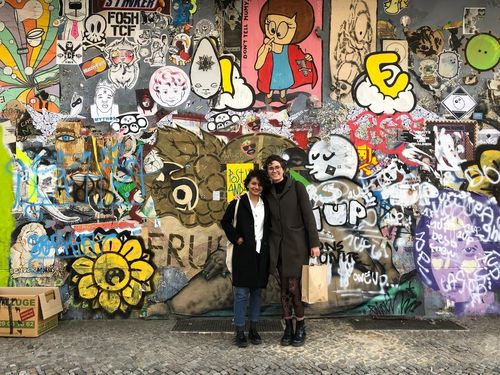 Fulbright Austria combined grantees Isra Hussain and Isabel Monaghan
Fulbright Austria combined grantees Isra Hussain and Isabel Monaghan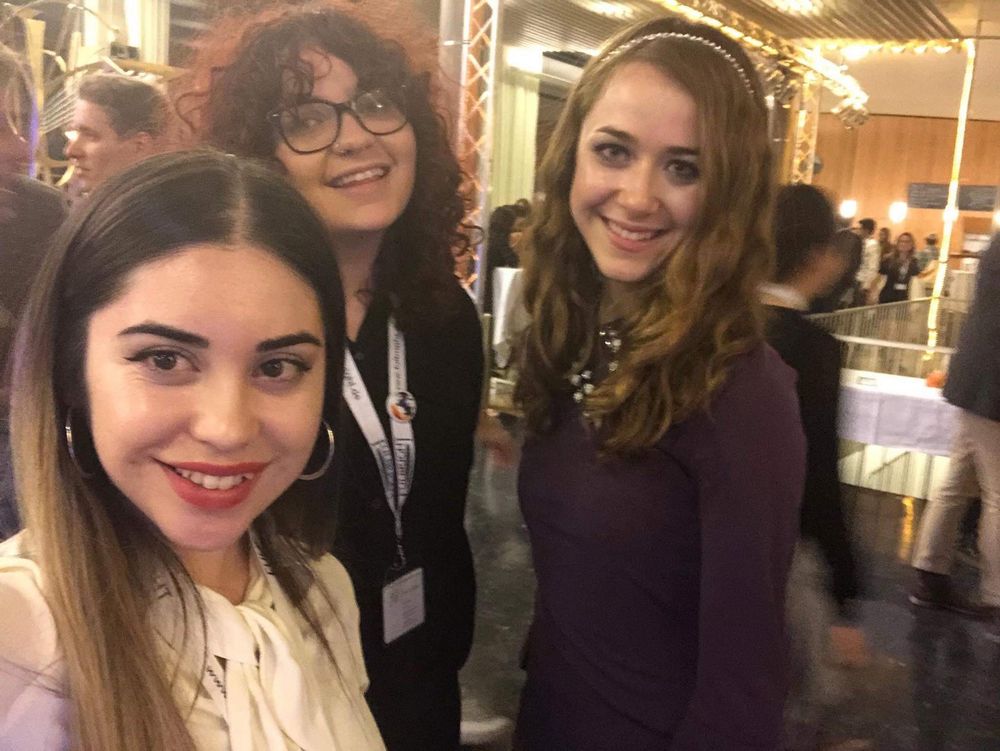 Fulbright Austria grantees Maria Sanchez, Roni Lubofsky, and Theodora Nestorova
Fulbright Austria grantees Maria Sanchez, Roni Lubofsky, and Theodora Nestorova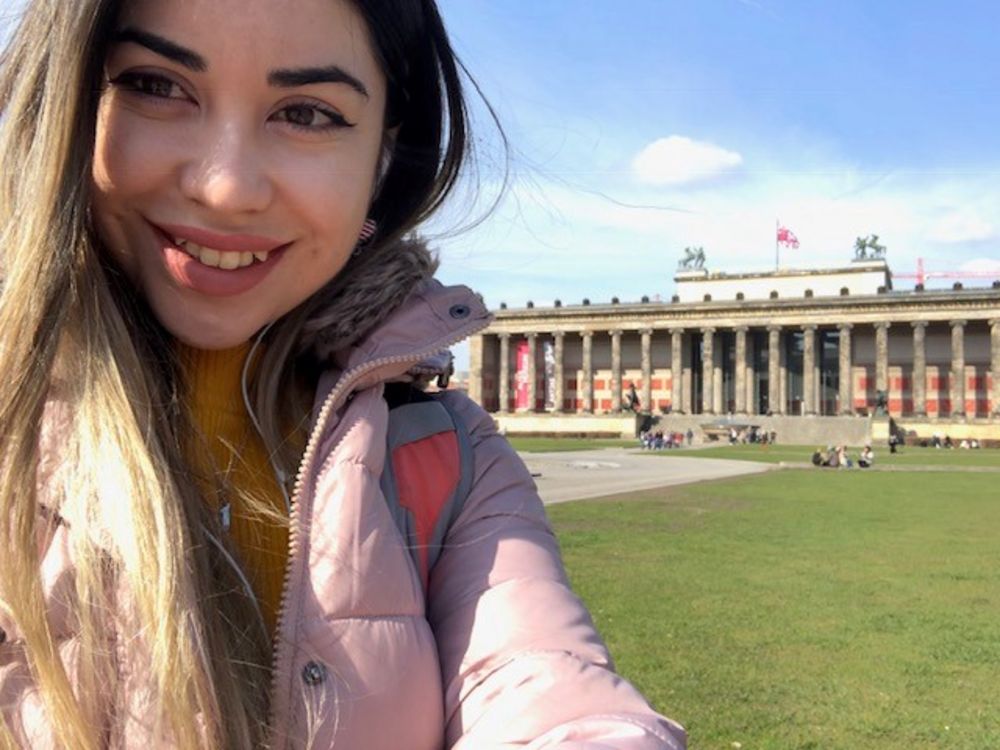 Fulbright Austria combined grantee Maria Sanchez
Fulbright Austria combined grantee Maria Sanchez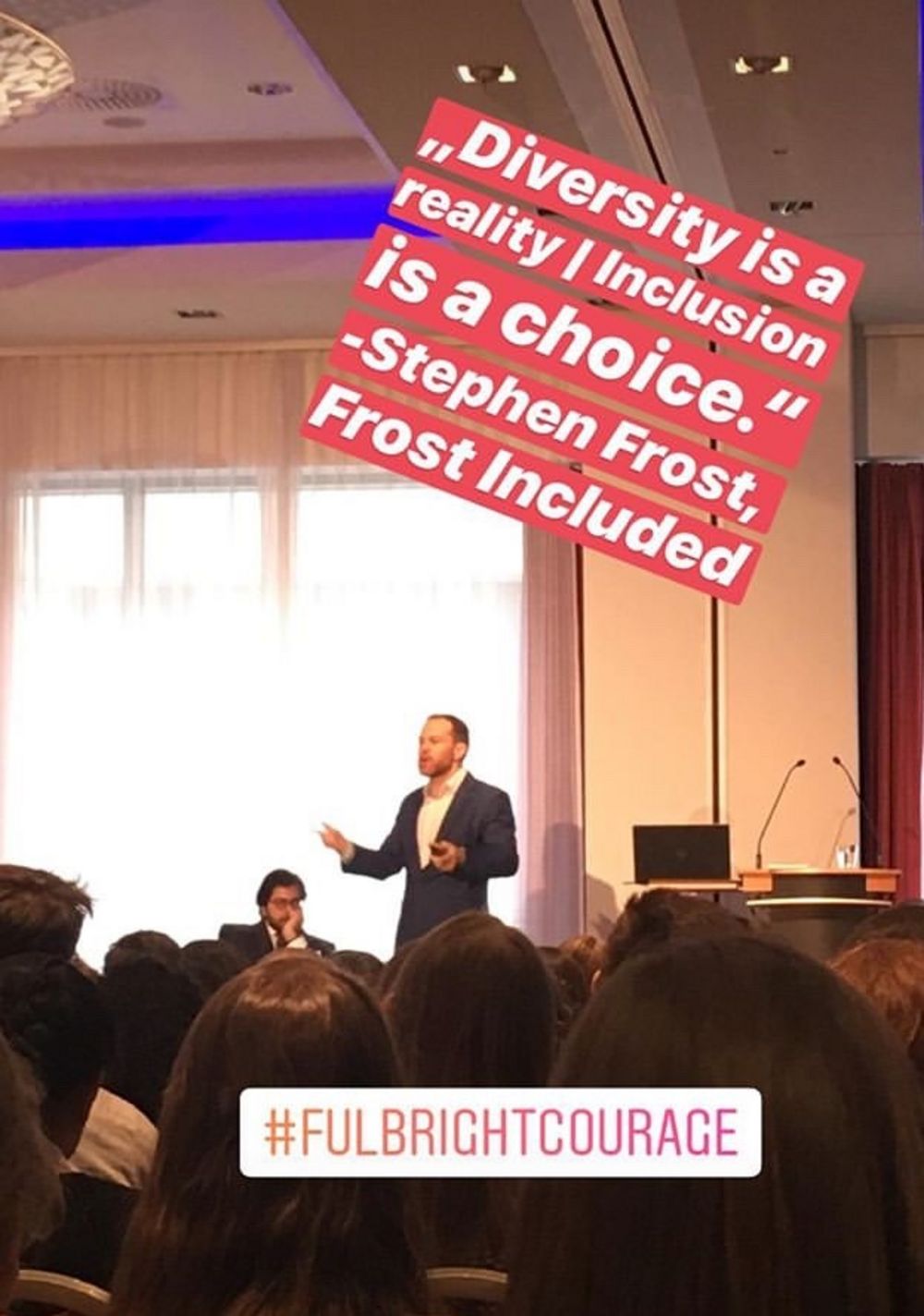
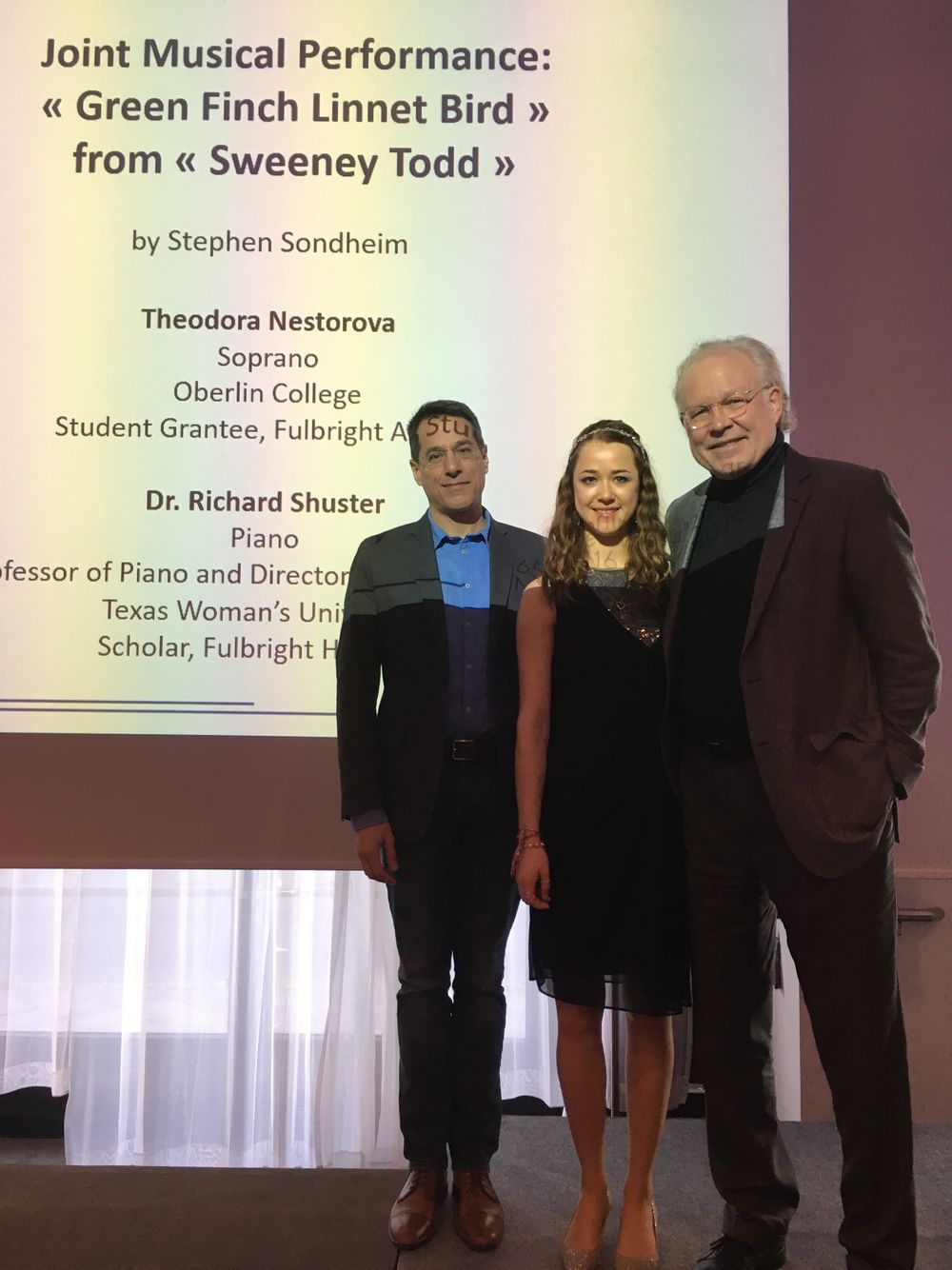 Fulbright Hungary scholar Richard Shuster, Fulbright Austria student Theodora Nestorova, and Fulbright Austria executive director Lonnie R. Johnson
Fulbright Hungary scholar Richard Shuster, Fulbright Austria student Theodora Nestorova, and Fulbright Austria executive director Lonnie R. Johnson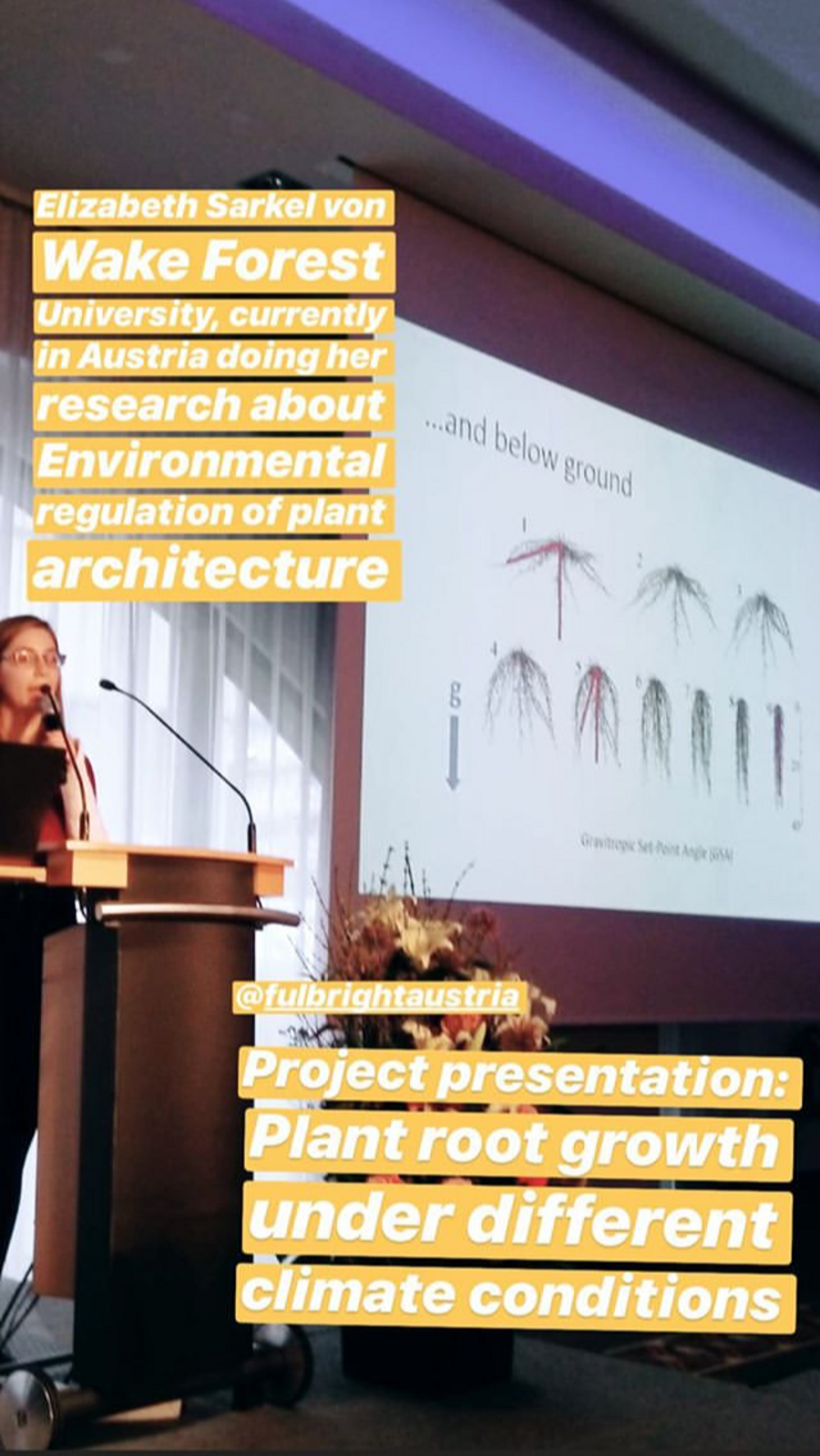 Fulbright Austria student Elizabeth Sarkel
Fulbright Austria student Elizabeth Sarkel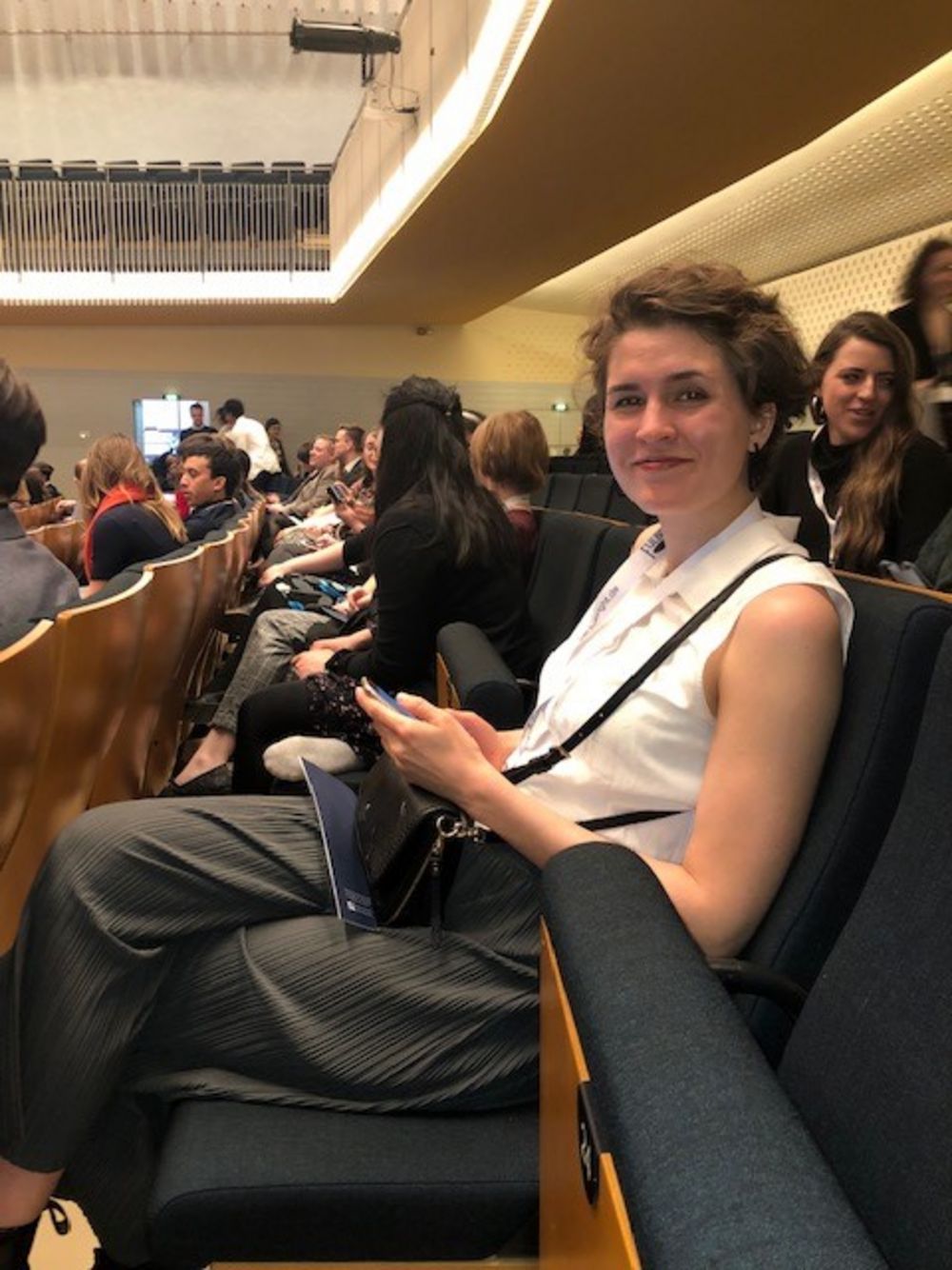 Fulbright Austria combined grantee Isabel Monaghan
Fulbright Austria combined grantee Isabel Monaghan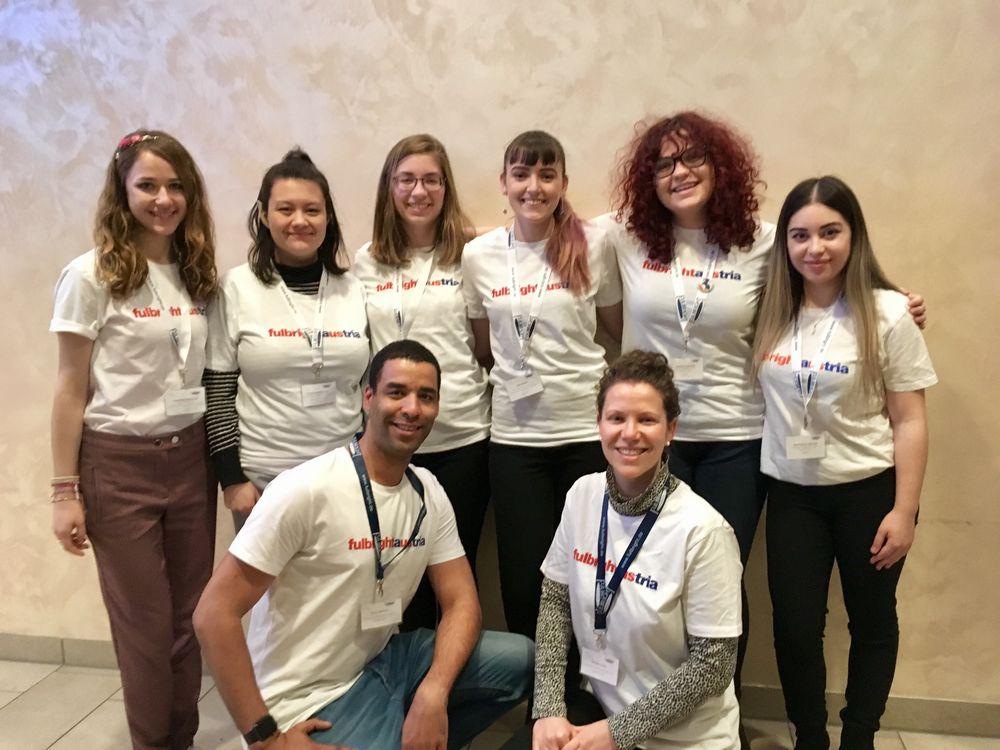 Fulbright Austria grantees (left to right): Theodora Nestorova, Elaine Chen, Elizabeth Sarkel, Zoë Dobler, Roni Lubofsky, and Maria Sanchez
Fulbright Austria staff: Dune Johnson and Darrah Lustig
Fulbright Austria grantees (left to right): Theodora Nestorova, Elaine Chen, Elizabeth Sarkel, Zoë Dobler, Roni Lubofsky, and Maria Sanchez
Fulbright Austria staff: Dune Johnson and Darrah Lustig